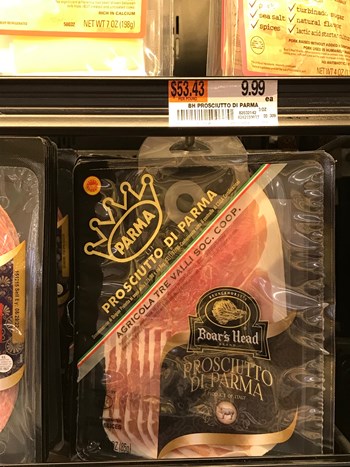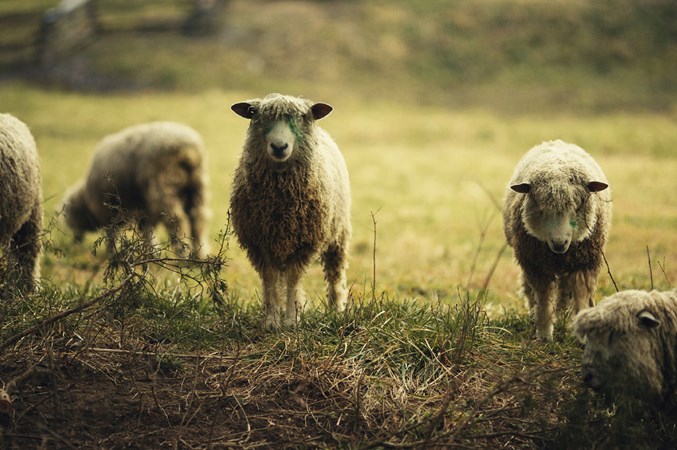Our major new undercover investigation released today (July 7th) has revealed the immense suffering of sows in cage systems on European farms—including those supplying “premium” Parma and Bayonne hams.
Powerful new footage from an investigation of 16 farms across Italy, Spain, France, and Poland reveals the cruelty, torment, and frustration that sows are forced to suffer in stalls and farrowing crates as they await a promised EU-wide ban on caged farming.
Warning: Animal Cruelty
Cages prevent almost all movement
The investigation reveals that sows:
- spend many weeks in cages so small they prevent practically all movement apart from standing up and lying down
- endure lying in their excrement and urine, something they would naturally avoid
- experience the torment of being unable to properly nurture their young because of the restriction of the cage
- resort to abnormal repetitive behaviors like bar biting and sham chewing because they are so frustrated.
Additional research from Compassion shows that, on average, Parma ham products are around 40% more expensive than equivalent US hams. Yet the higher price is no guarantee of higher welfare. The caging practices documented in Compassion’s investigation are banned in several US states, such as California and Massachusetts.
The US is the largest export market for Parma ham in the world, receiving more than 11.6 million pounds of the product in 2021.
We’re sending a summary of our investigation findings to agriculture ministers across Europe and urging our supporters to take action calling on them to press for the EU ban without delay.
EU committed to cage ban
Last year, the European Commission publicly committed to introducing legislation to end the caging of European farmed animals. This commitment was made in response to the European Citizens’ Initiative “End the Cage Age,” led by Compassion in World Farming, which gathered 1.4 million verified signatures from citizens across Europe and was the first successful initiative for farmed animals.

Around eight million Parma-branded hams and around one million Bayonne-branded hams are produced annually in Italy and France respectively.
“Americans who pay a premium for products like Parma and Bayonne hams are likely to be shocked to discover that these so-called ‘high-end’ products are from systems that keep animals in cruel cages that have been banned in some US states” said Ben Williamson, our US Executive Director.
“Our investigation reveals that these sows are forced to live unimaginably miserable lives—they can’t move around, properly nurture their young, or express natural behaviors. They’re so frustrated they resort to abnormal behaviors like bar biting and sham chewing.”
“That’s why we’re urging European agriculture ministers to introduce the ban they promised without delay, and we will continue to campaign until we end factory farming. As goes Europe, so often goes the rest of the world.”
Smooth financial transition possible
A report released in March showed that a smooth financial transition can be achieved for farmers when the EU introduces a ban on cages. The Institute for European Environmental Policy (IEEP) report, Financing the cage-free farming transition in Europe, shows that both EU and national financial mechanisms can be used—some of which are already available to farmers—to support the transition to cage-free animal agriculture across the EU.
Read more about our cages investigation.

